Sarah and my financial independence dream was coming to fruition and it was inevitable we were going to reach our magic number. So why, at the same time, did I feel overwhelmed and full of anxiety? Everything I heard or read up until this point led us to believe financial freedom would be just that, freeing. But so far it was more stressful than freeing.

I felt the weight of opportunity upon our shoulders. Since the beginning of time, we as first world humans have never had more opportunities or options. The endless amount of options create more choices, decisions and cognitive stress. This condition is a lesser known behavioral bias called choice overload.
Toothpaste, Why can’t I decide!
On a Saturday morning I found myself in Wal-Mart, in search of some toothpaste. This was my first time purchasing toothpaste in a store since finding Slickdeals a decade or more ago. On Slickdeals there are typically one or two active toothpaste deals at any given time. But this time I decided to go to Walmart because, with my new financial situation, I didn’t need to be a deal hunter. This time I want to buy the healthiest option. So I strolled up to the toothpaste aisle and immediately noticed an entire wall of toothpastes, 57 types to be exact. 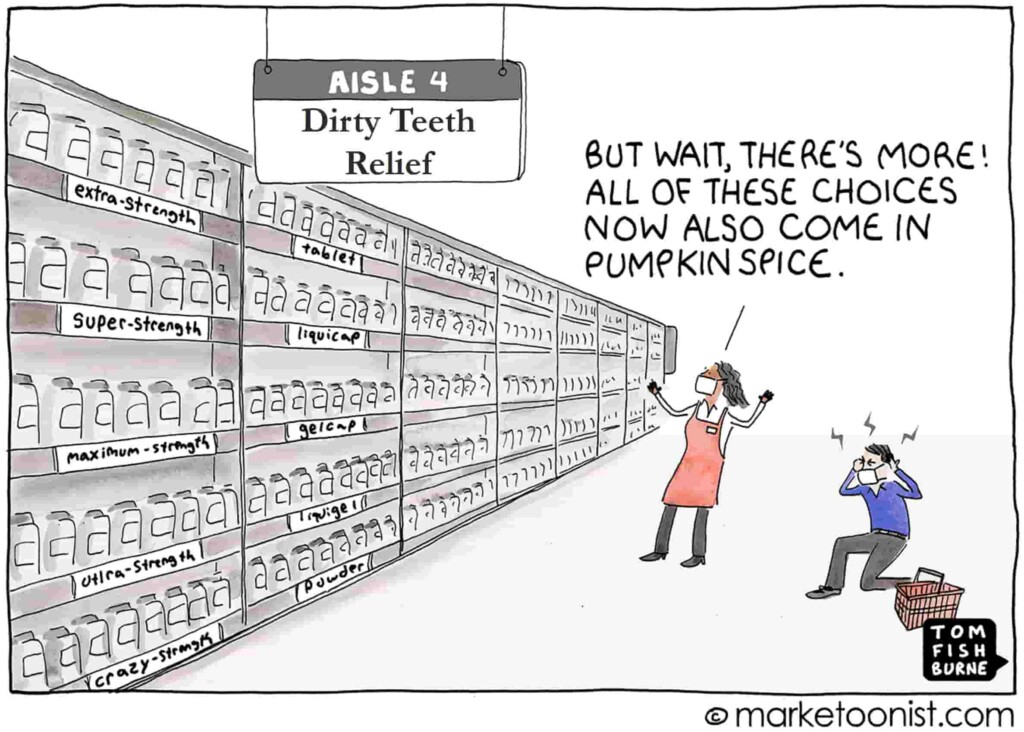 I read multiple boxes and attempted to figure out what’s important when choosing a healthy toothpaste but eventually I gave up and left the store empty handed.
I read multiple boxes and attempted to figure out what’s important when choosing a healthy toothpaste but eventually I gave up and left the store empty handed.
My plan B was to research the different toothpastes online instead of in-store where I can more easily compare ingredients, brands, and reviews. When I got home I started to compare the brands, ingredients and reviews on Walmart.com but what I didn’t account for was the toothpaste optionality increased from 57 products to 399. The additional options directly correlated to an increase in my frustration.
As I learned later, I was “maximizing” which is one of the symptoms of choice overload. Maximization is to seek the best option by means of exhaustive research examining all alternatives. It is contrasted with satisficing, in which you evaluate options until you find one that is “good enough”. I should have let a good decision on toothpaste suffice.
Paradox of Choice
It wasn’t until Danielle (a friend at 1517) recommended the book Paradox of Choice, by Barry Schwartz, that I connected my anxiety with the downsides of having too many decisions.
Barry wrote “Autonomy and freedom of choice are critical to our well being, and choice is critical to freedom and autonomy. Nonetheless, though modern Americans have more choice than any group of people ever has before, and thus, presumably, more freedom and autonomy, we don’t seem to be benefiting from it psychologically”
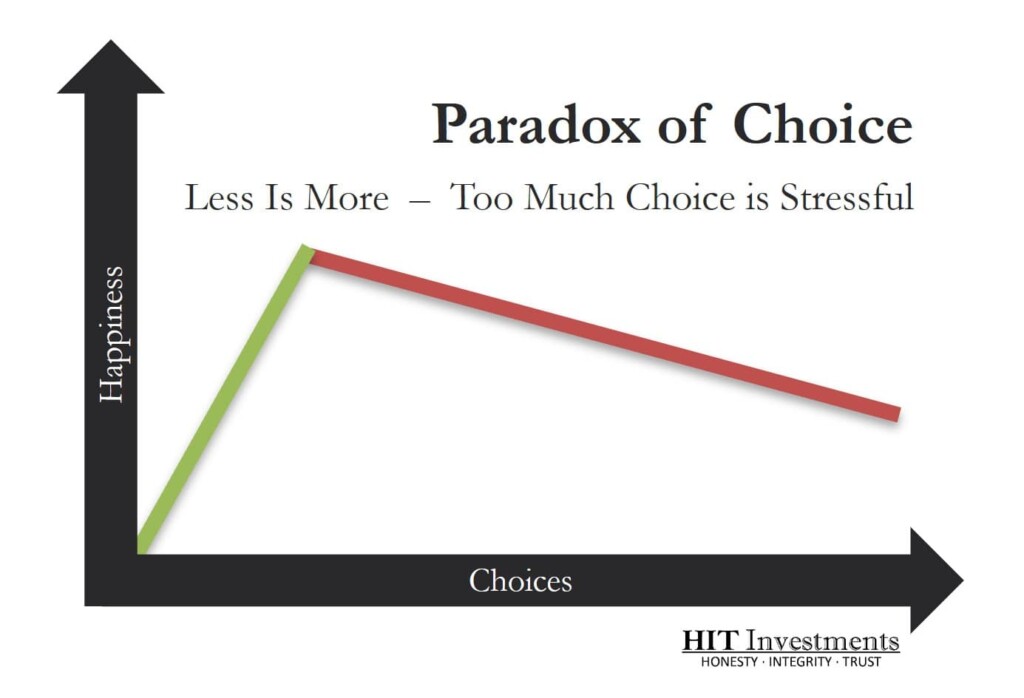
Financial Freedom is at the top of the list in autonomy and choice and I was experiencing maximizing, decision fatigue and decision deferral. Decision deferral jumped out as an obvious symptom as I think back to leaving Walmart without a tube of toothpaste but what is decision fatigue?
Decision Fatigue
In 2011 there was a study performed on judicial decision making, and although it was not performed specifically for the purposes of studying decision fatigue, I think the results speak for themself. I’ll walk you through the study and you can see the dramatic effects of decision fatigue in a serious and alarming way.
Over a 10 month period a group of researchers collected data on 1,112 judicial rulings made by 8 different judges serving on parole boards. The judges were literally deciding if a person was to be set free (78%) or to be freed earlier than originally scheduled. I can’t think of a more mentally exhausting role than repeatedly ruling on a person’s chance at freedom and the potential consequence to others if that person is freed too early.
We expect judges to make impartial decisions and apply legal reasoning to the facts of a case in a rational, mechanical and deliberative manner. If that was true we shouldn’t expect noticeable change in the results of their decisions throughout the day, but that was not how the results played out. In the chart below you can see that when the judge starts the day and or comes back from a food break the chances of the prisoner receiving a favorable ruling is at its greatest (65% in favor rate) but then throughout the session the favorable rulings taper off to almost 0%.
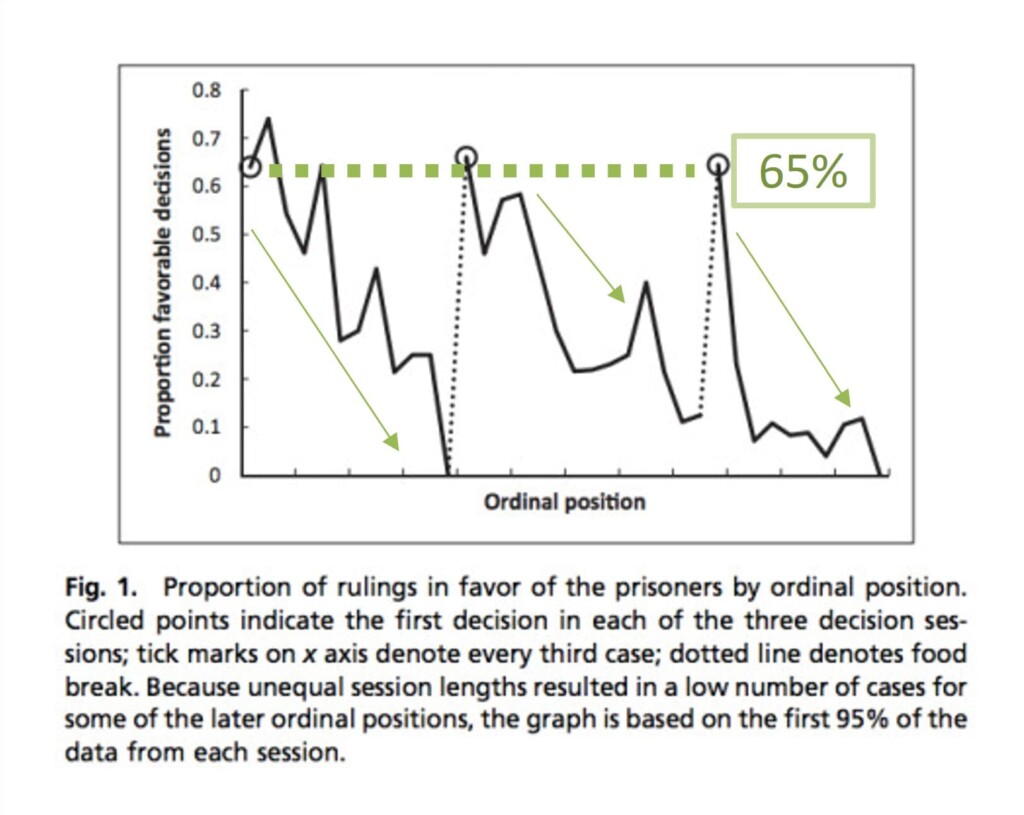
My belief is that this is a clear example of decision fatigue.
I have noticed decision and mental fatigue in my own life and believe I am more capable of learning, writing, and making complex decisions earlier in the day. This mental fatigue is the sole reason why I stopped burning the midnight oil and started waking up early to work on HIT Investments back in 2011.
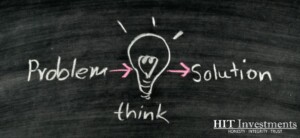
So now that I know choice overload bias is why financial freedom was stressing me out, how did I overcome it? In the next post, 6 steps to Conquer Choice Overload, I shared the process I used to conquer choice overload.
If you got this from a friend and aren’t already subscribed, click here to have the next post come to your inbox too
References


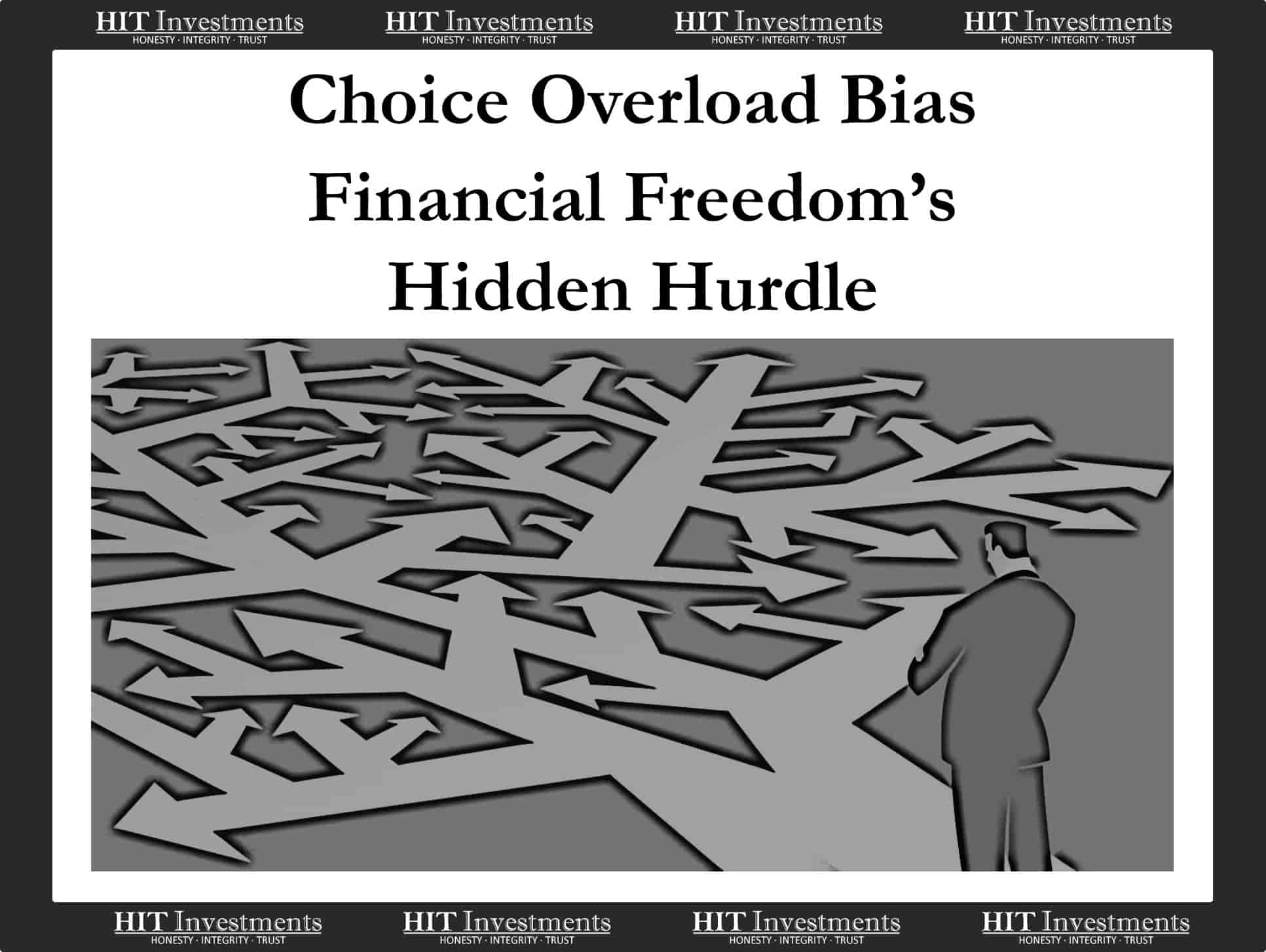
Leave A Comment